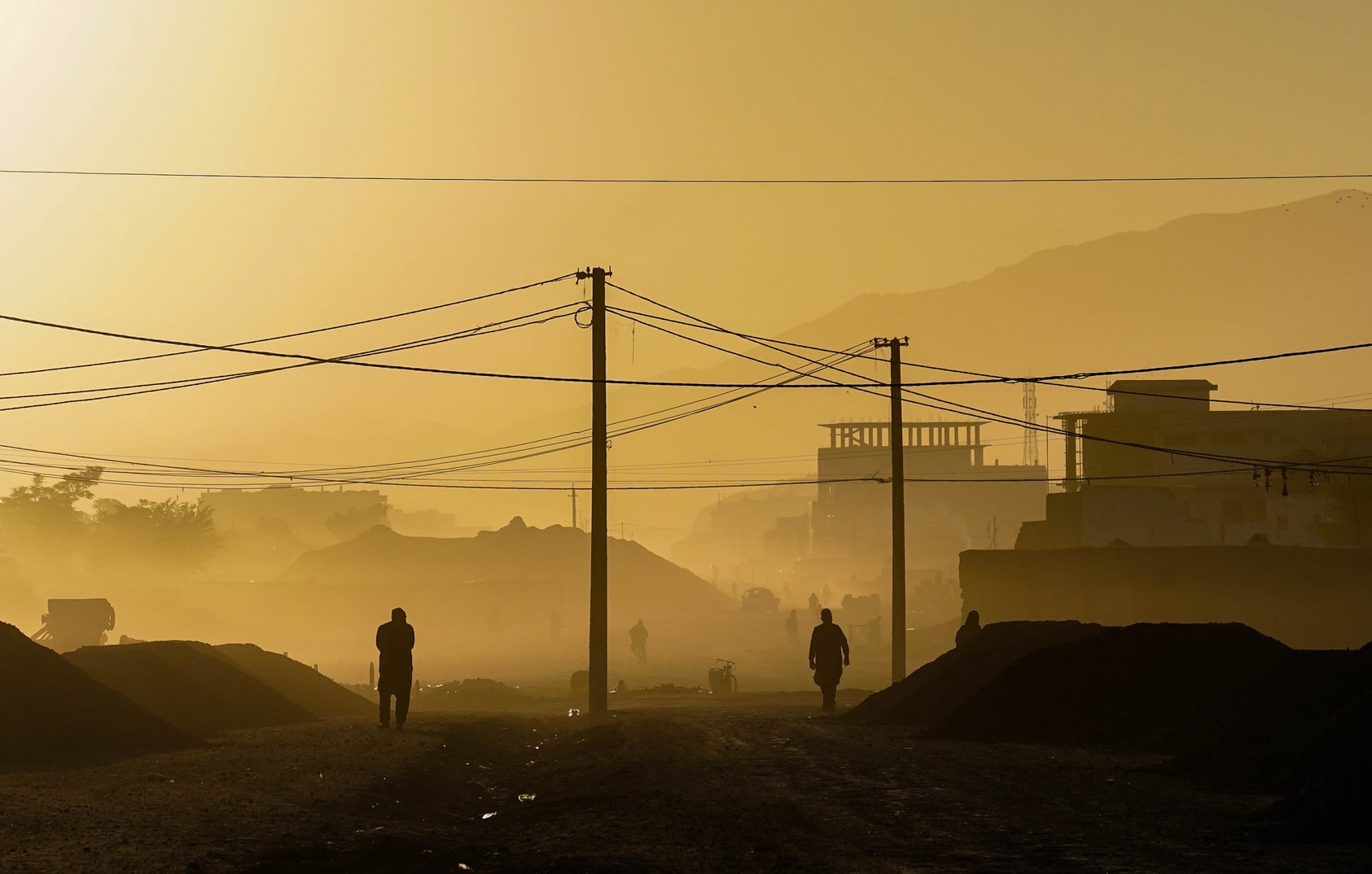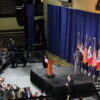Comment Editor Samuel Pennifold on the history of the Afghanistan conflict since 2001 and why we should and will be back.
It is not a matter of if Western powers should return to Afghanistan, it is a matter of should and it is a moral we do imperative.
After the initial successes of the invasion by America and allies in late 2001 following the 9/11 terrorist attacks on the world trade centre orchestrated by Osama Bin Laden, the leader of Al Qaeda who was being hidden in Afghanistan, Al Qaeda was driven back into the mountainous regions of the nation whilst the Taliban was removed from power and followed Bin Laden to the mountains. A level of freedom was restored to the country’s citizens that had been taken away, but the invasion of Iraq in 2003 split the west’s attention and allowed the Taliban to regroup and come out swinging. In the proceeding years as the newly elected democratic Afghanistan government fought to keep the country together whilst escalating Taliban suicide attacks, car bombs and other assaults led to a massive escalation in force from the US under Obama and its allies, including the UK.
Afghanistan has been a nation frozen in time ever since then, becoming America’s longest-ever war replacing Vietnam, with much of the conflict focused around the now notorious Taliban stronghold the Helman province. Troop numbers and cost peaked in the early 2010s under former President Obama, this did lead to the Taliban being squeezed out again but a mounting death toll led to political will crumbling across the West once more and many NATO countries lost their stomach for counterinsurgency and peacekeeping especially after the boogeyman of the west in Osama Bin Laden had finally been taken of the board.
In 2014 NATO officially ended combat operations, confident in the abilities of the Afghan security forces to keep the peace. Many nations, fronted again by the US did leave some troops behind for training and support purposes operating from small military bases that also offered a foothold in the region for special op missions – the kind that is essential to an ongoing counter-insurgency.
For the most part, though this move led to another Taliban resurgence of suicide attacks, car bombs and other assaults by the time President Trump had come to power. Under President Trump, the US moved from a small but meaningful resistance to attempts to appease the Taliban by signing a peace treaty in February 2020 that promised the total removal of US troops in exchange for the Taliban holding Al Qaeda at bay and continuing dialogue with the internationally recognised government in Kabul.
But in the word of Churchill “You cannot reason with a tiger when your head is in its mouthâ€.
This adage proved true again when newly elected president Joe Biden promised – like many before him – to end America’s forever war by following through on Trump’s plans. Early into his reign as president Biden pledged to have all US troops removed from Afghanistan by September 11 2021, the 20th anniversary of the 9/11 attacks, per the terms of the peace treaty signed by Trump. But in a move that reflects the last ten years of chaos in Afghanistan policy the operation to remove troops has been done hastily and without planning leading to a humanitarian disaster as every few hours another community, town, major city and region fall to the hands of Taliban fighters in Afghanistan.
It is now simply a matter of time until the government-controlled capital of Kabul falls to the Taliban as hundreds of thousands flee the onrushing Taliban forces. Nations around the world are now panicking as embassies are shut down or are reduced to a skeleton staff, Boris Johnson has convened an emergency COBRA meeting for this afternoon to discuss the situation. Members of the opposition have called for parliament to be recalled so the situation can be debated in the commons.
Former international development secretary, Rory Stuart, who was written extensively on Afghanistan said when the US decided to pull their troops it should not have been a given all others did as well and the other NATO members should have “taken up that slack”.
Afghanistan has become a humanitarian disaster of epic proportions, and as a military and political failure, it ranks on par with the fall of Saigon. The social, political and economic impacts of America and the west’s decision to abandon Afghanistan now will be felt for generations to come.
And there is not a single reason why the decision had it be made.
There is no one single point of the failure here but rather a collective collapse of the political and military mindset of the west. The west has always been awful at fighting counter insurgencies and understanding has been replaced with an attitude of throwing troops and money at the issues. In Afghanistan, and around the world, this has never worked in securing a stable government and has only led to political unrest at home, which has led to a decrease in troops numbers, and a subsequent Taliban resurgence, until more troops are needed again to restore an acceptable level of peace once again. A vicious cycle of failure had been embedded into Afghanistan but society was starting to take hold in the urban regions of Afghanistan where girls could go to school, and freedom existed. This was true until former President Donald Trump attempted to appease the Taliban, an act that set in motion plans that no subsequent president could have undone. Biden might have only towed this particular line but he towed it hard.
The simple truth is that the cost of staying in Afghanistan whilst only with a small footprint had a disproportionately massive impact on the security of the region.
The political and military cost to the ongoing small Western operation in Afghanistan was minimal, there were no huge calls to end the western presence in Afghanistan from anywhere bar the camps of the Taliban and their allies in Pakistan. Some may argue that it was a distraction from great power competitions with China and Russia but anyone who would suggest this does not truly understand the nature of grand strategy and great power competition. The art of grand strategy is the ability to see the macro in the micro and Afghanistan is a microcosm of the global power struggle between the US, China and to a lesser but still real extent Russia. Afghanistan is a gateway for Russia into Central and South East Asia, and whilst the western world shies away from global responsibility China is offering to pay for anything anyone wants. Afghanistan falling to the Taliban will further open up Central and South East Asia to the Chinese who will undoubtedly offer support to the Taliban, as China has no qualms about posturing on its Western flank towards Afghanistan and its Eastern flank of the South China Sea.
Anyone with an interest in seeing the dangerous wave of extreme far-right politics crashing over Europe halted should also be more than concerned by the humanitarian crisis that will only grow if Afghanistan falls. Hundreds of thousands more refugees and displaced peoples will join the millions already seeking shelter and safety in Europe. Refugees should be treated as people in need of help but as ever they will become political bargaining tools with far-right politicians using them as scapegoats for issues they themselves have so often contributed to making and to further fuel social divisions that are growing into chasms across Europe.
The torrid tale of Afghanistan alone will not be the end of liberal western politics and the pursuit of freedom as we know it, but when the historians of the future look back it’ll be another domino where if there had been someone strong-willed enough to do something different and do better they could have stopped one domino and changed history.
I fear that amongst Biden, Johnson, and the rest of the western world leaders there is no one brave enough to stand up for what is right. But if the chance is there and I believe the will is as well we must and should return to Afghanistan. With a brand new doctrine of counterinsurgency, one that focuses on nation-building and nurturing the natural process of growth. Otherwise, I suspect one day we will be forced back

















